Buy Epithra : Epirubicin 50 Mg Injection Online
$93.89
Brand Name : Epithra
Composition : Epirubicin
Manufactured by : Glenmark (Onkos) Pharmaceuticals Ltd.
Strength : 50 mg
Form : Injection
Packing : Pack of 1 Vial
Prescription Required *
Epithra (Epirubicin) 50 Mg Injection is a chemotherapy drug used in the treatment of various cancers, including breast cancer, ovarian cancer, lung cancer, and stomach cancer. Epithra is a brand name for Epirubicin, an anthracycline drug that works by inhibiting DNA replication and damaging cancer cells, leading to their death.
Uses:
Epithra is used to treat various types of cancer, including breast cancer, ovarian cancer, lung cancer, and stomach cancer, in combination with other chemotherapy drugs, or as a standalone chemotherapy treatment. It is especially effective in treating breast cancer and is commonly used in breast cancer treatment regimens.
HOW TO USE:
Epithra is administered through an intravenous injection, by a qualified medical professional, in a hospital or clinic setting. The dosage and duration of treatment may vary depending on the patient’s medical condition, cancer type, and other medications taken. The injection should be given slowly, as a single dose only, and not mixed with other medications.
Storage Conditions:
Epithra should be stored in a cool and dry place, at room temperature, away from direct sunlight and heat. It should be kept out of the reach of children and pets.
Mechanism of action:
Epithra contains Epirubicin, an anthracycline drug that works by inhibiting DNA replication and damaging cancer cells. It binds to DNA, forming a complex that inhibits DNA and RNA synthesis and damages the cancer cells. It also induces the death of cancer cells by direct toxicity and by promoting the immune system to attack the cancer cells.
Precautions:
Before taking Epithra, the patient should inform the doctor of any allergies, medical history, or current medications taken. The drug may interact with other medications or cause adverse reactions in patients with pre-existing medical conditions. The patient should also avoid drinking alcohol and grapefruit juice while taking Epithra.
Contraindications:
Epithra should not be taken by patients with severe liver disease, a history of heart disease, or a history of allergic reactions to anthracycline drugs. It may also harm the fetus in pregnant women or nursing mothers.
Drug Interactions:
Epithra may interact with other medications, such as blood thinners, antibiotics, antifungals, and other chemotherapy drugs. The patient should inform the doctor of any other medications taken to prevent drug interactions.
Overdose:
In case of overdose, the patient should seek medical attention immediately, as it may cause severe side effects, such as neutropenia, anemia, thrombocytopenia, or heart problems.
Side Effects:
Epithra may cause various side effects, such as nausea, vomiting, diarrhea, fatigue, hair loss, and anemia. These are expected side effects of chemotherapy and may go away after treatment. However, in rare cases, Epithra may cause severe allergic reactions, fluid buildup, heart problems, or nerve damage, which require immediate medical attention.
Be the first to review “Buy Epithra : Epirubicin 50 Mg Injection Online” Cancel reply
Related products
Anti Cancer
Anti Cancer
Anti Cancer
Anti Cancer
Anti Cancer
Anti Cancer


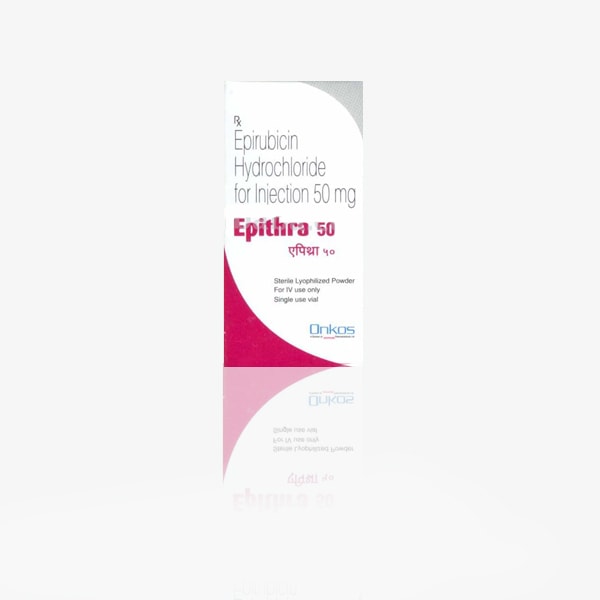
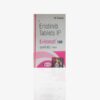

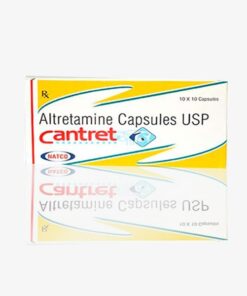
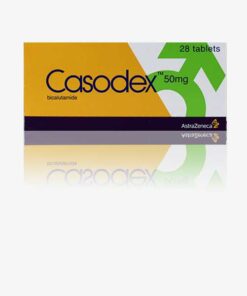
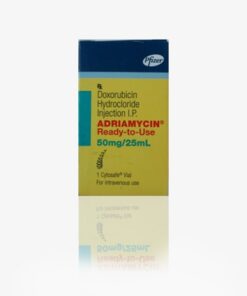
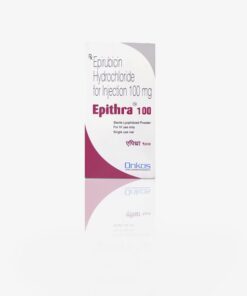
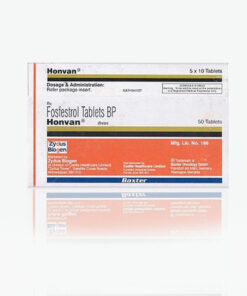

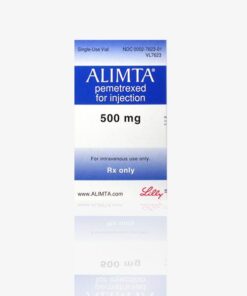
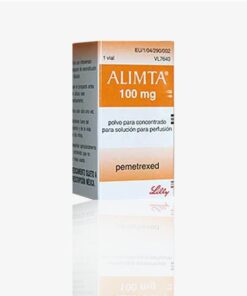
Reviews
There are no reviews yet.